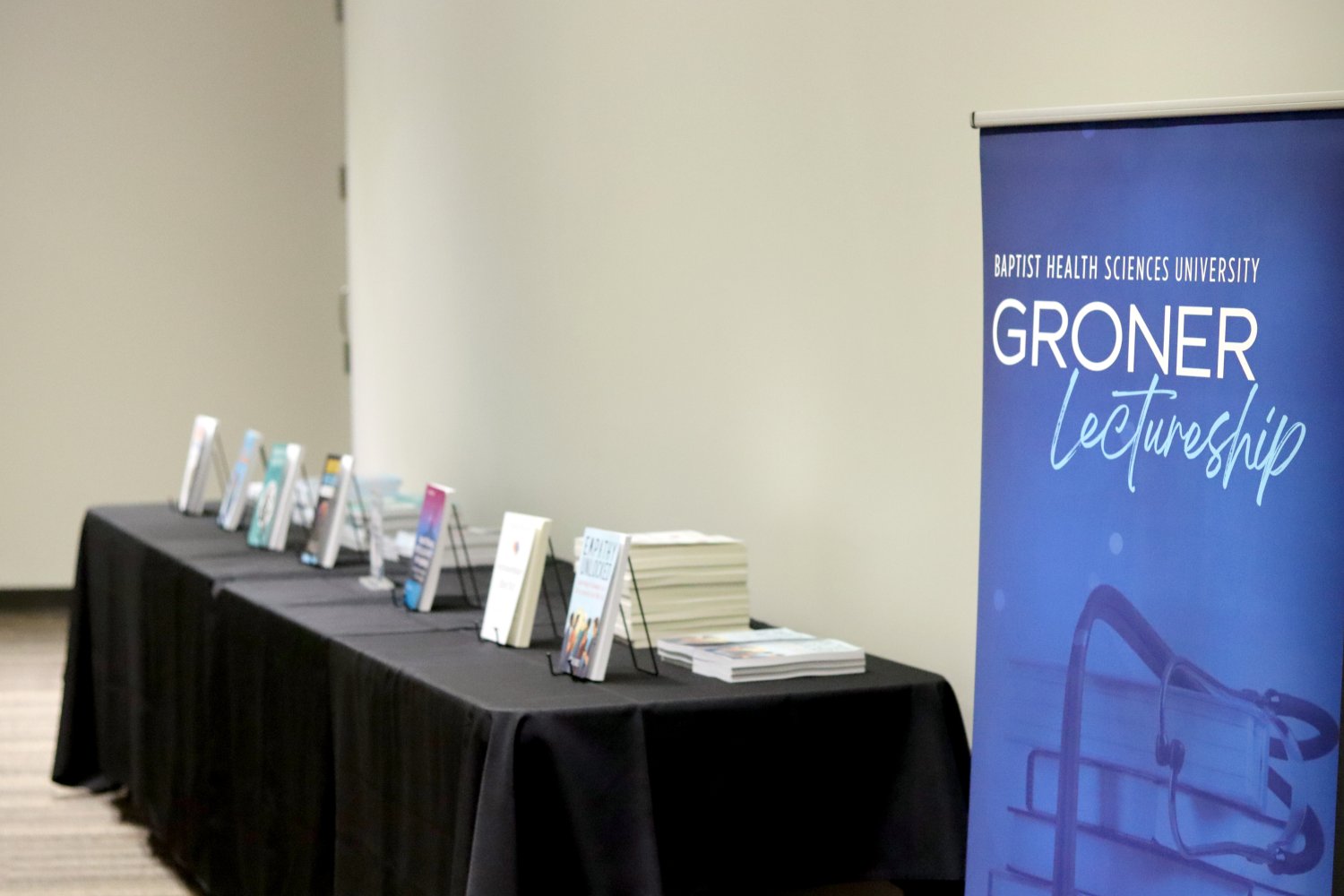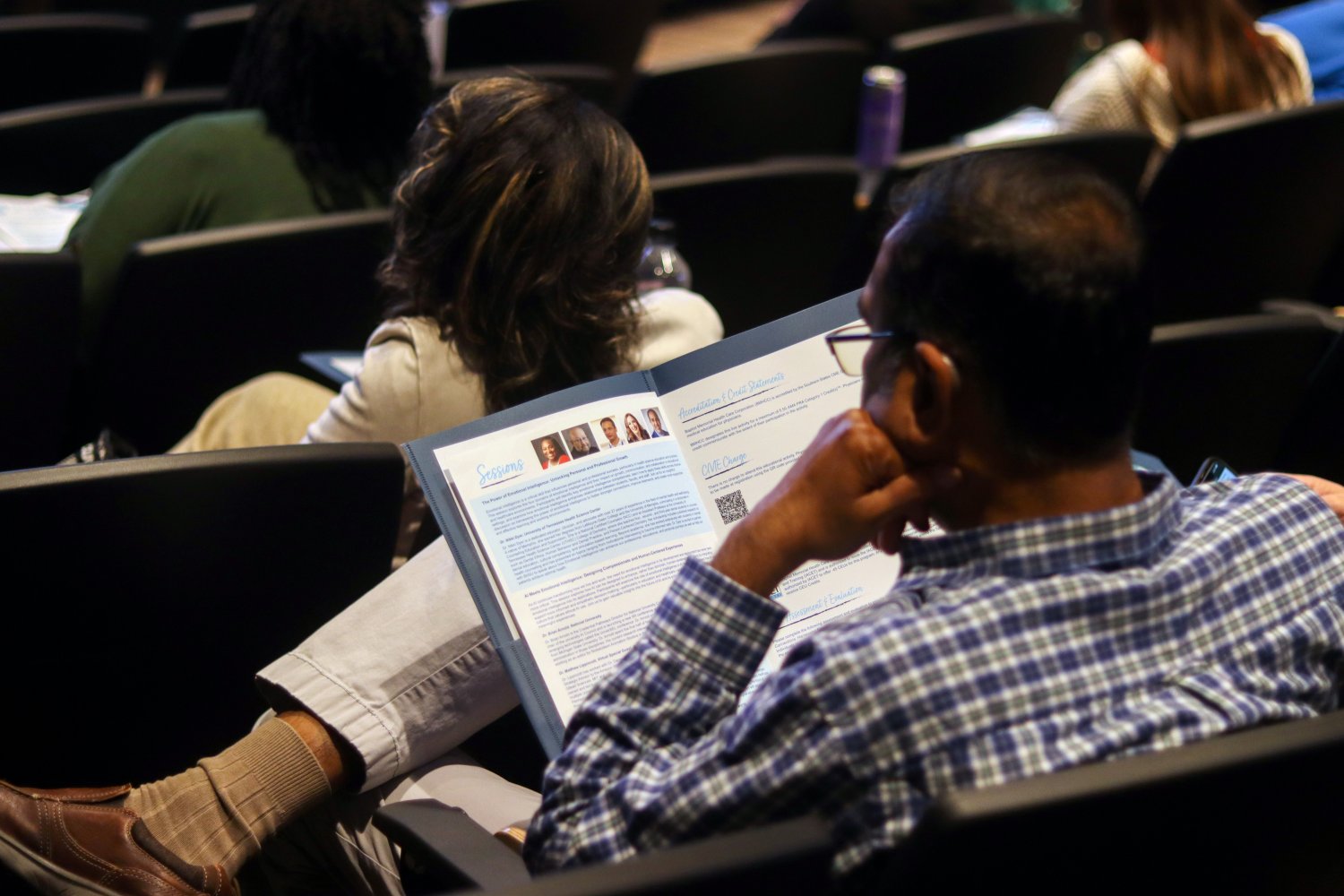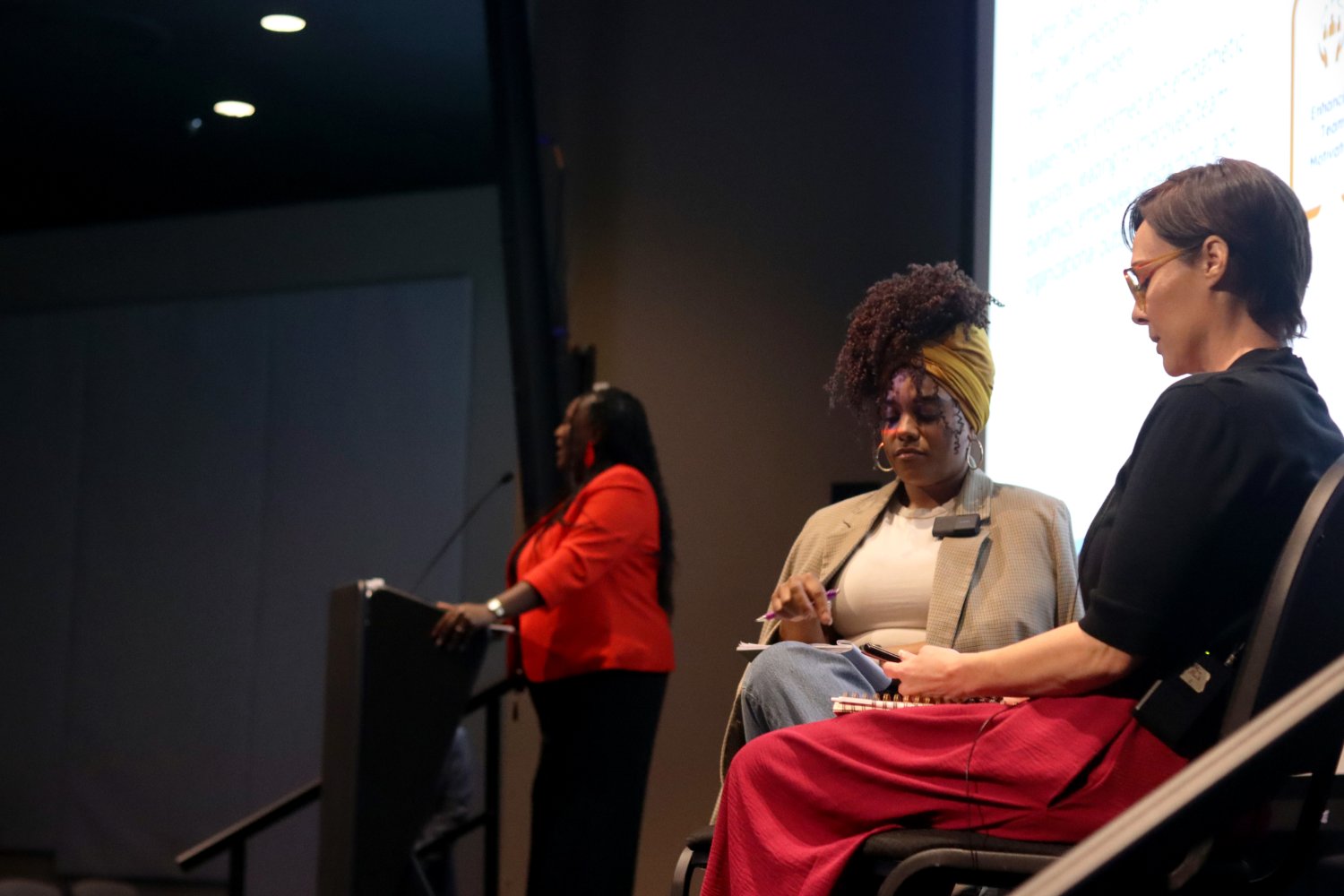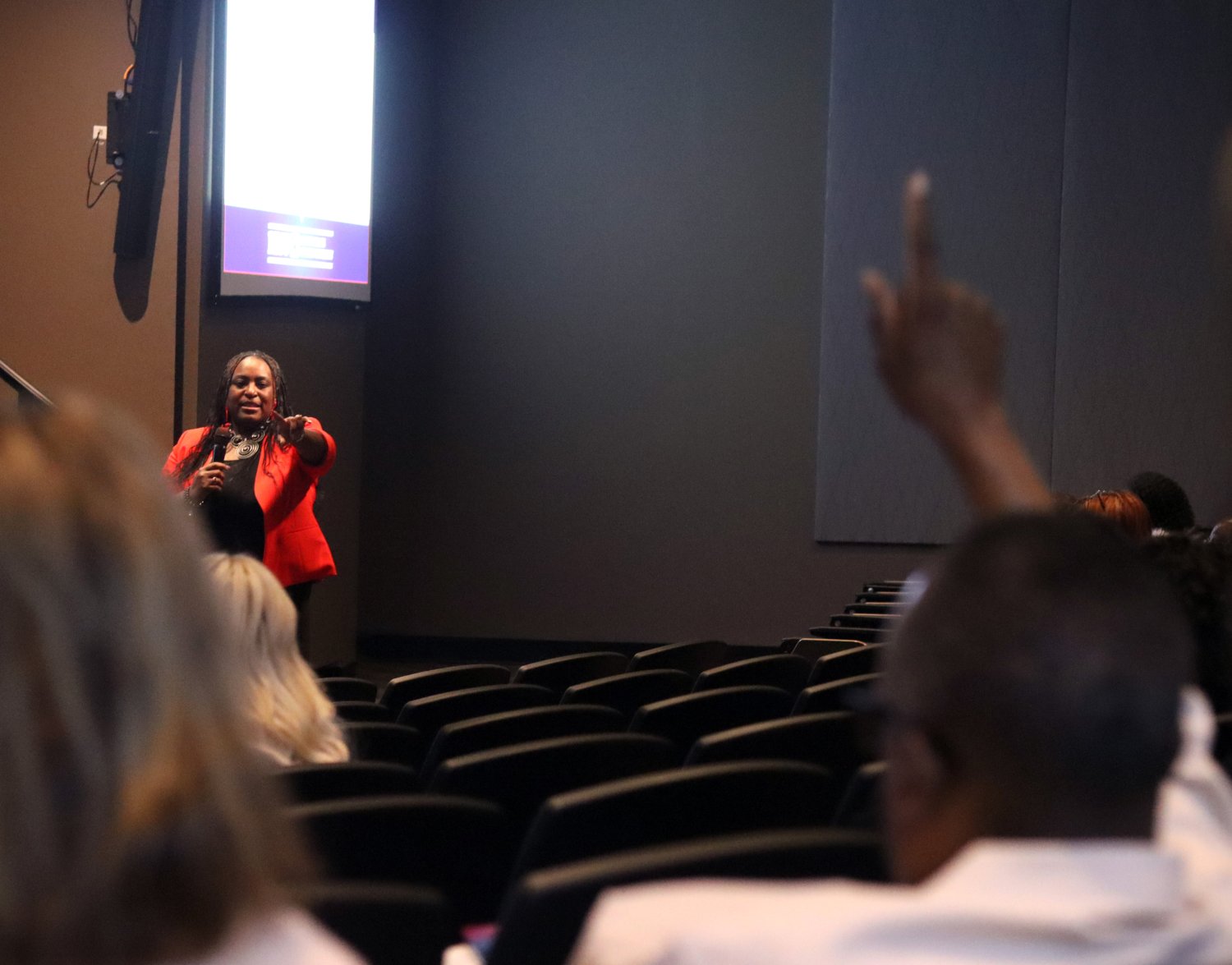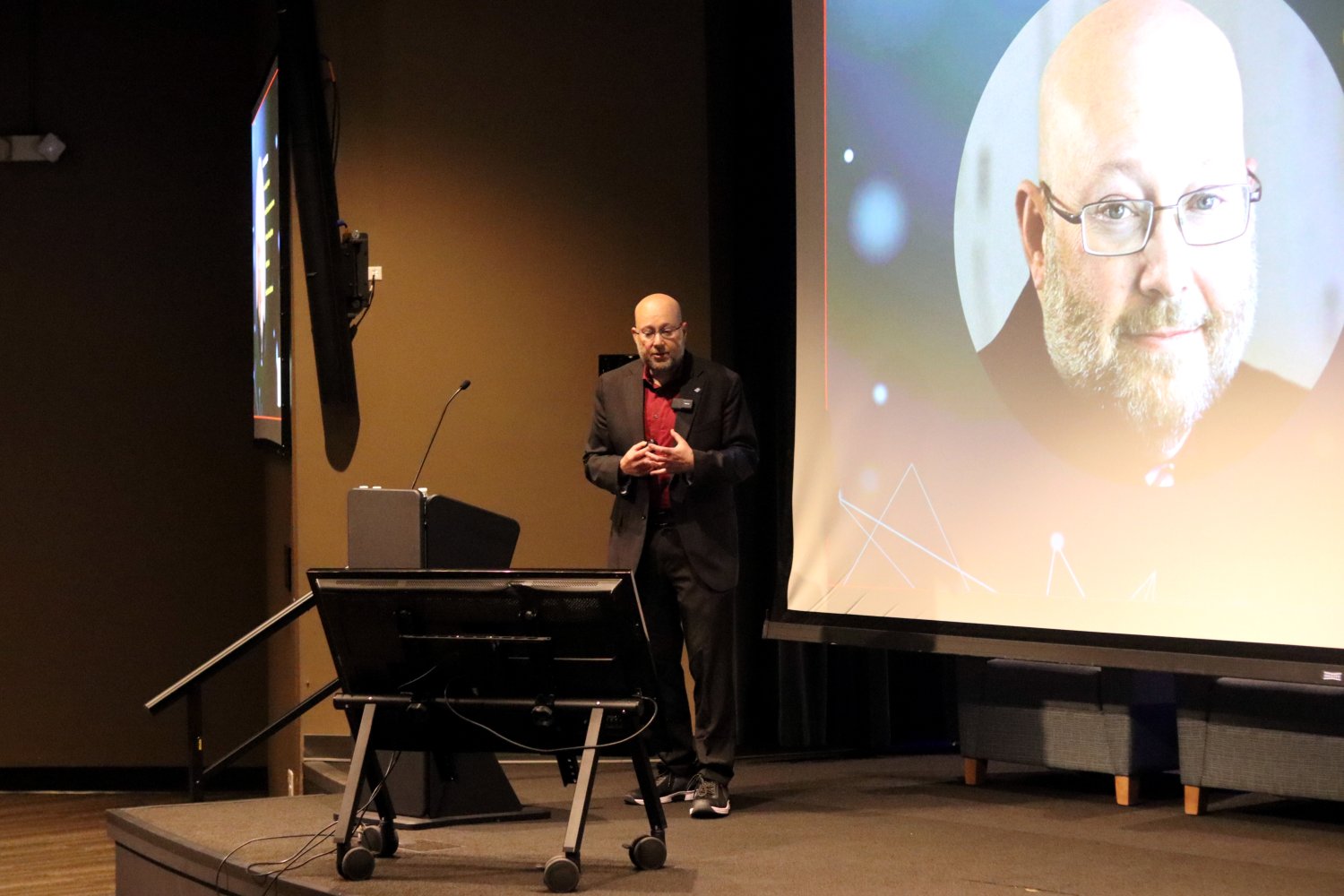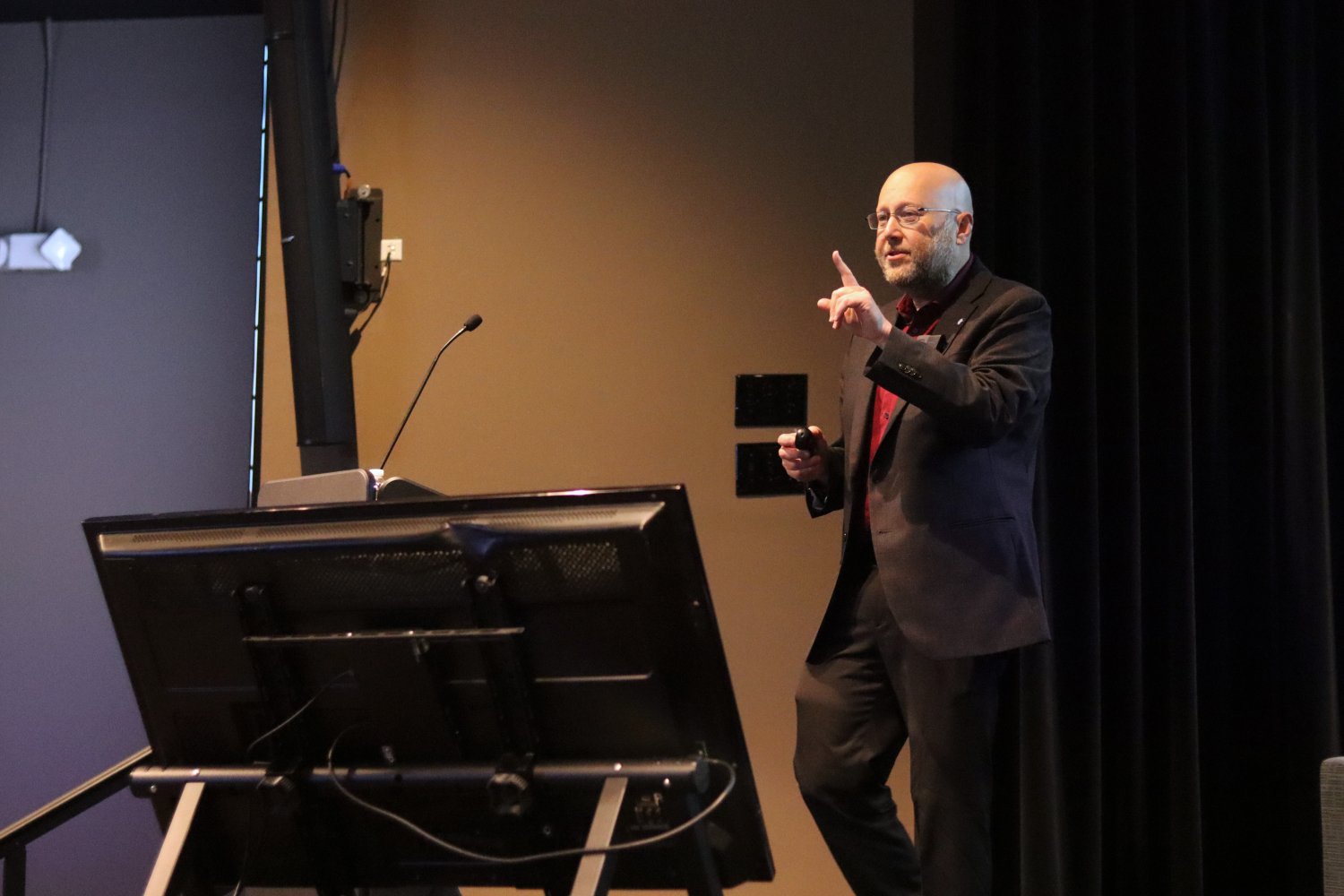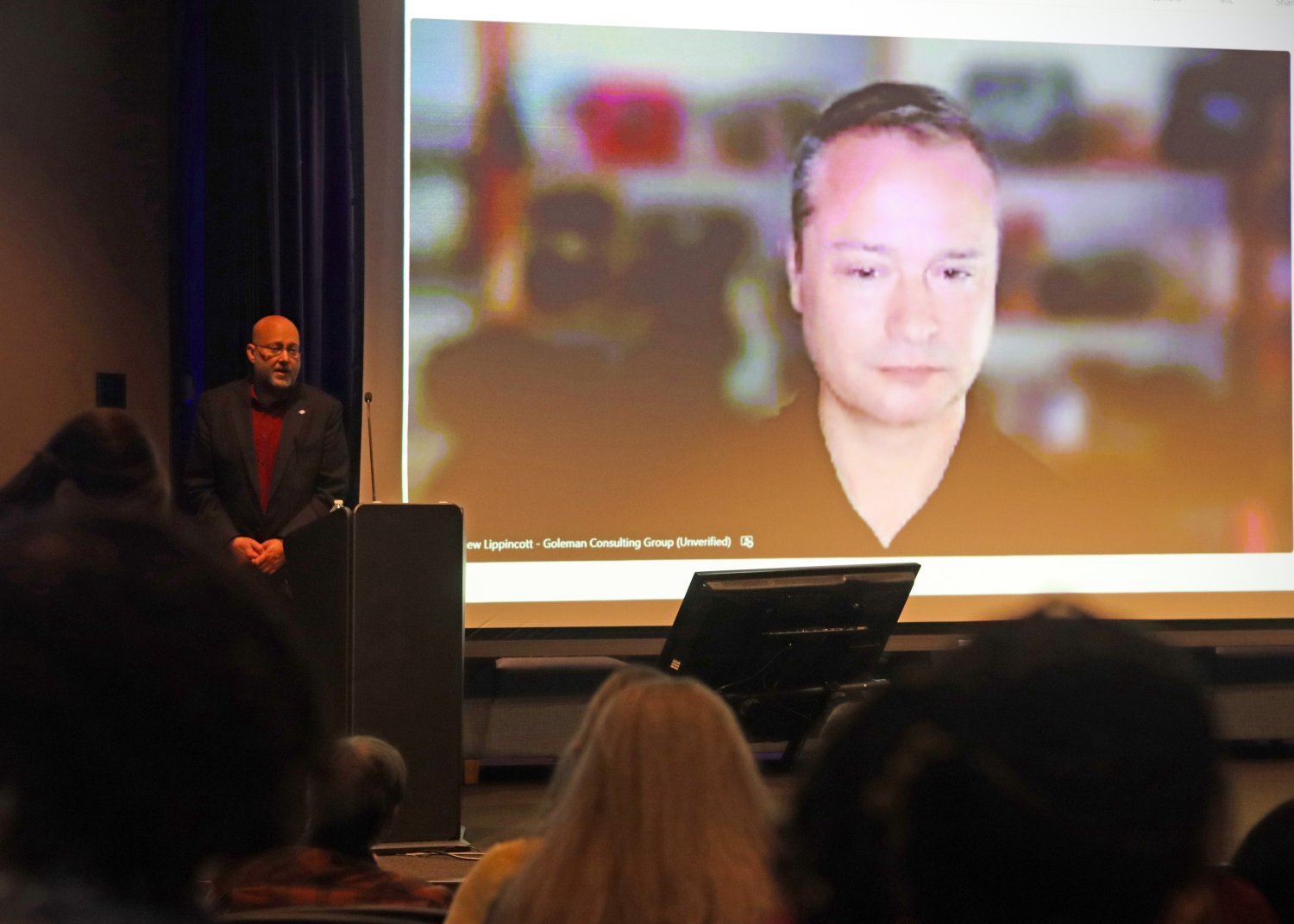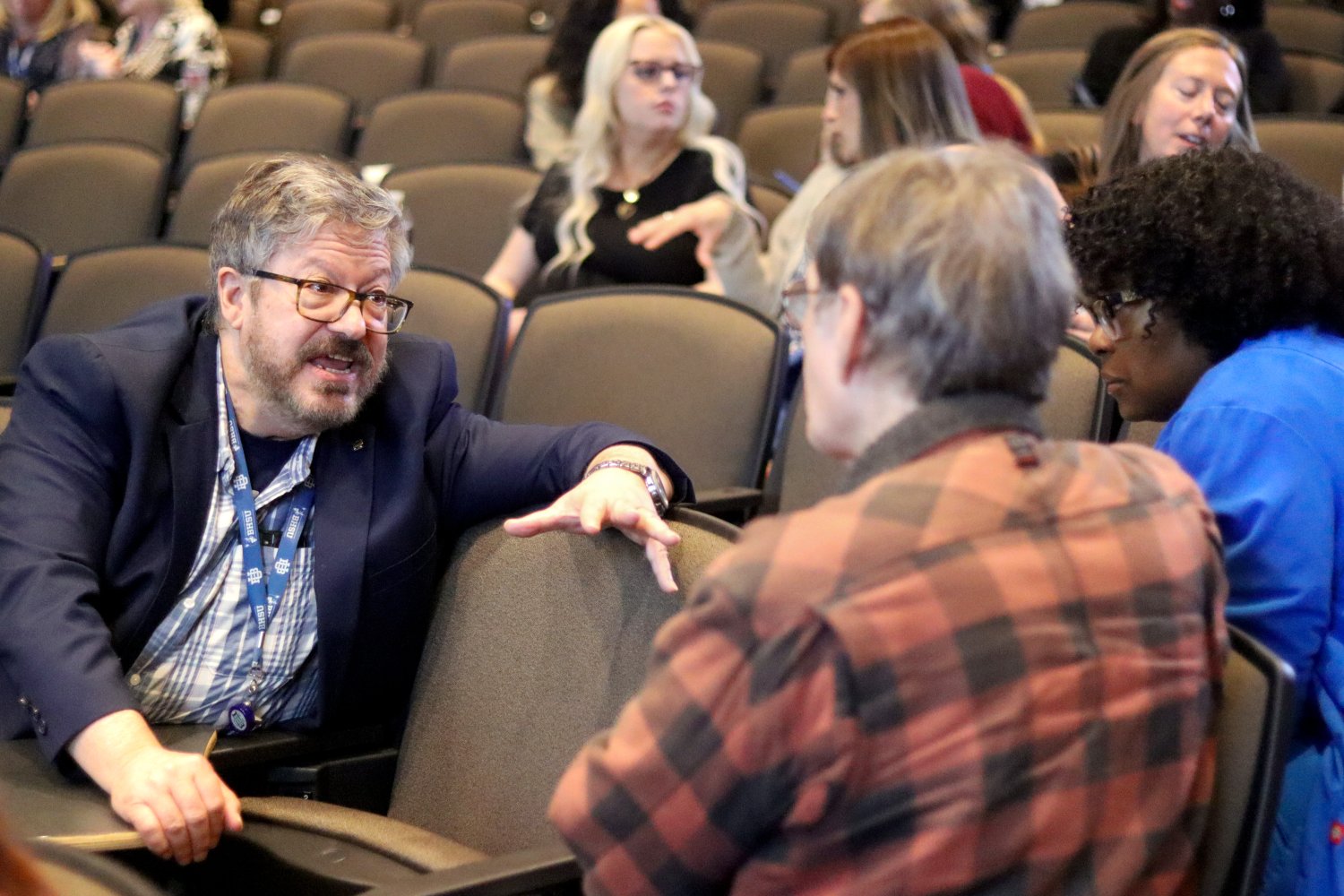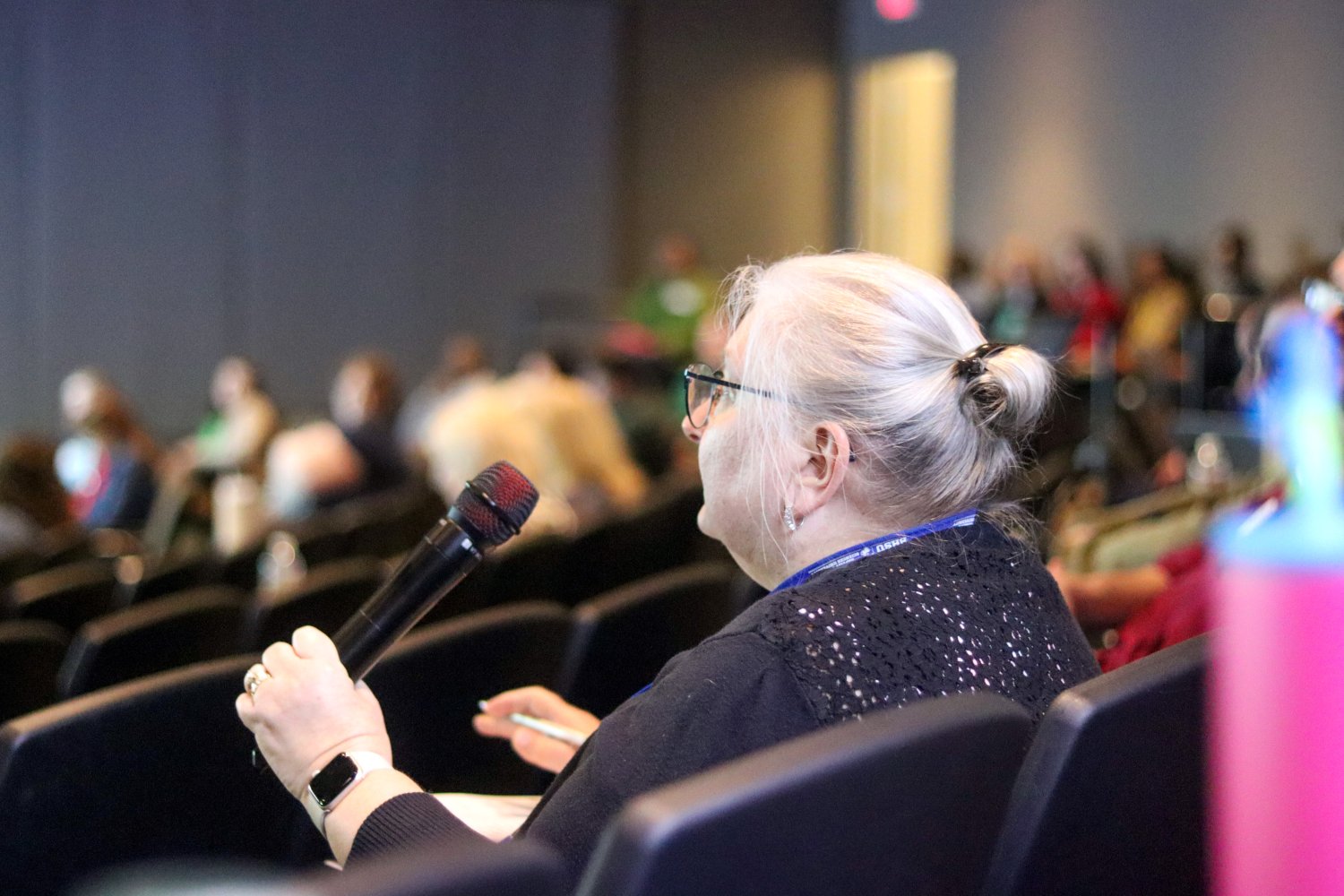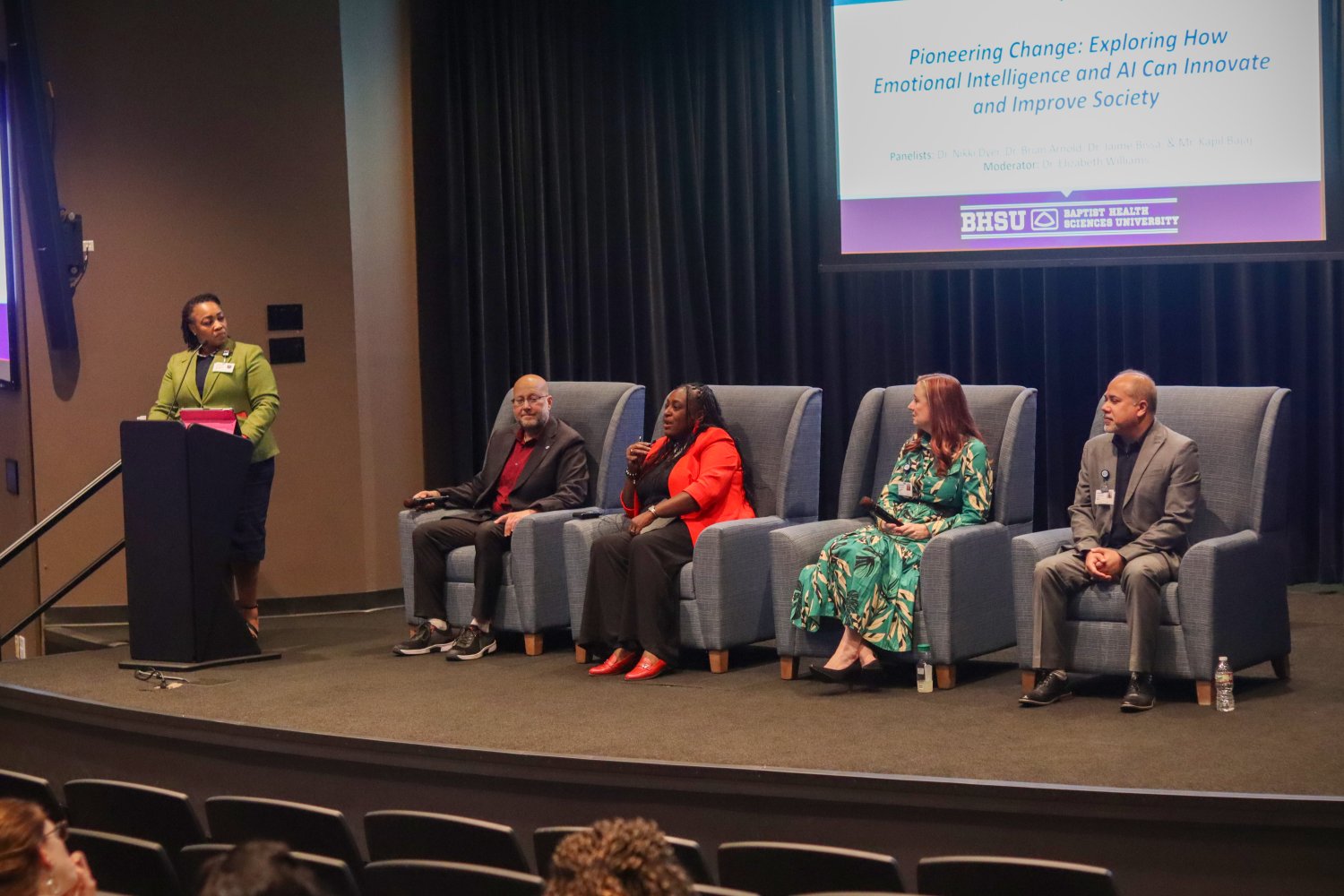2025 Groner Lectureship Explores Emotional Intelligence and AI in Education and Health Care
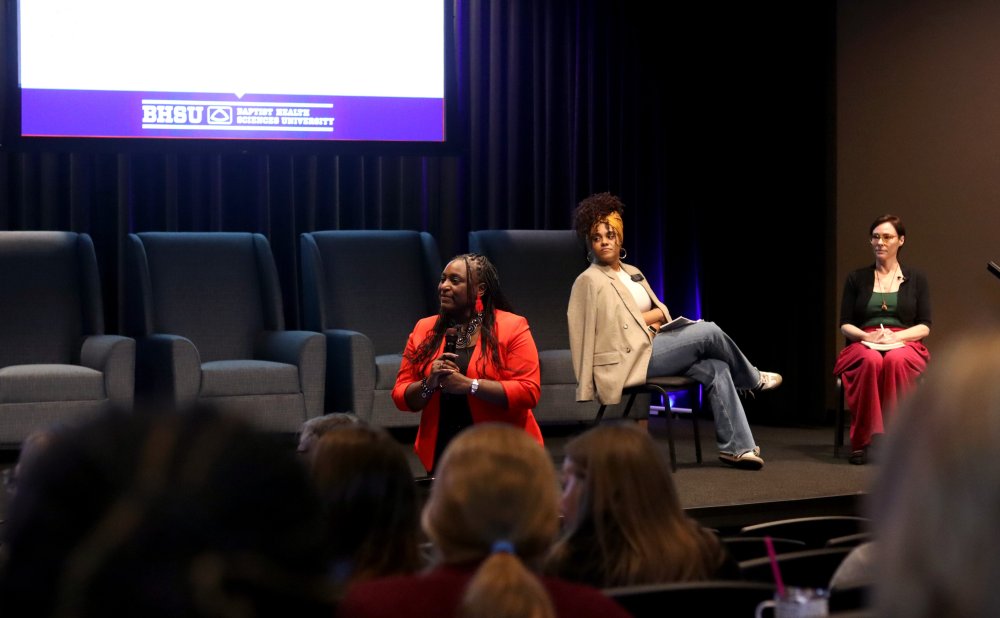
The 2025 Annual Groner Lectureship, hosted by Baptist Health Sciences University’s Center for Learning and Innovative Pedagogy (CLIP), brought together a diverse community of educators, health care professionals, and thought leaders for a day of dynamic learning and forward-thinking dialogue. This year’s theme centered on the intersection of Emotional Intelligence (EI) and Artificial Intelligence (AI).
This event was held on Thursday, April 17, at BHSU’s Groner Auditorium, with virtual access available to national audiences. Through a series of engaging sessions, participants explored how emotional intelligence can enhance the development, deployment, and ethical use of AI in education, health care, and professional environments.
“We believe in preparing professionals and students not just to adapt to change, but to lead it—with compassion, reflection, and responsibility. The Groner Lectureship Planning Committee chose this theme because our students, faculty, and professionals deserve more than technical training—they deserve transformative learning. EI teaches us how to show up for one another; AI challenges us to think critically about how we design the systems that shape our lives.”
- Dr. Jaime Bissa, Director of the CLIP.
Morning Session: The Power of Emotional Intelligence
Facilitator: Dr. Nikki Dyer, University of Tennessee Health Science Center
In the opening session, Dr. Nikki Dyer led an interactive and thought-provoking discussion on the critical role of emotional intelligence in academic and health care settings. Titled “The Power of Emotional Intelligence: Unlocking Personal and Professional Growth,” the session focused on the four domains of EI and how they influence communication, collaboration, and leadership. Participants learned how to identify EI competencies and apply them across diverse settings to foster stronger relationships between students, faculty, and staff.
"In the intricate realms of health care and health sciences education, EI is not just a buzzword—it is the glue that holds effective communication and trust together. Reflecting on my experiences, I’ve seen how a well-timed empathetic response can ease a client's or patient’s anxiety or how understanding a colleague’s perspective can lead to better team dynamics. EI is even more crucial as AI becomes an integral part of our care systems. While AI offers exciting and remarkable efficiencies, it’s our EI that ensures these technologies serve to enhance human connection not replace authentic connection and ethical care."
-Dr. Nikki Dyer
Afternoon Keynote: AI Meets Emotional Intelligence
Speakers: Dr. Brian Arnold, National University & Virtual Guest Dr. Matthew Lippincott, Goleman Consulting Group
As AI continues to transform how we live and work, Dr. Brian Arnold introduced a compelling vision for human-centered technology in the session “AI Meets Emotional Intelligence: Designing Compassionate and Human-Centered Experiences.” He was joined virtually by Dr. Matthew Lippincott, a leading voice in emotional intelligence research. Together, they examined how EI can be embedded into AI systems to promote empathy, support decision-making, and ensure ethical applications in education and health care.
"Technologies like AI are rapidly changing. The ability to deal with that change requires emotional intelligence. By cultivating digital literacies and emotionally reflective practices, we can navigate the overwhelming amount of information available and find signal among the noise."
-Dr. Brian Arnold
Panel Discussion: Pioneering Change
Panelists: Dr. Nikki Dyer, Dr. Brian Arnold, Dr. Jaime Bissa, and Mr. Kapil Bajaj
The day concluded with the panel, “Pioneering Change: Exploring How Emotional Intelligence and AI Can Innovate and Improve Society.” Before a packed auditorium and online audience, panelists delved into emerging AI trends, the increasing importance of emotional intelligence in technology, and strategies for ethical innovation. The consensus was clear: while AI’s potential is boundless, its benefits will be realized only if grounded in human values and emotional awareness.
Honoring a Legacy
The Groner Lectureship is made possible through the Frank Shelby Groner Memorial Endowment Fund, established in 1994 by the Baptist Memorial Health Care Foundation. This endowment honors the legacy of Dr. Groner, a leader and visionary in health care education. In 2021, the endowment was fully designated to Baptist Health Sciences University to support ongoing educational events in his name.
Looking Ahead
This year’s lectureship not only sparked important conversations but also inspired attendees to think more deeply about how we design, implement, and interact with technology in compassionate and meaningful ways. With emotional intelligence at the forefront of innovation, BHSU remains committed to fostering professional development that is both timely and transformative.
The 2025 Annual Groner Lectureship, hosted by Baptist Health Sciences University’s Center for Learning and Innovative Pedagogy (CLIP), brought together a community of educators, health care professionals, and thought leaders for a day dedicated to reimagining the future of learning, technology, and human connection. This year’s event was held on Thursday, April 17, at BHSU’s Groner Auditorium, with virtual participation extending the conversation to a national audience.






